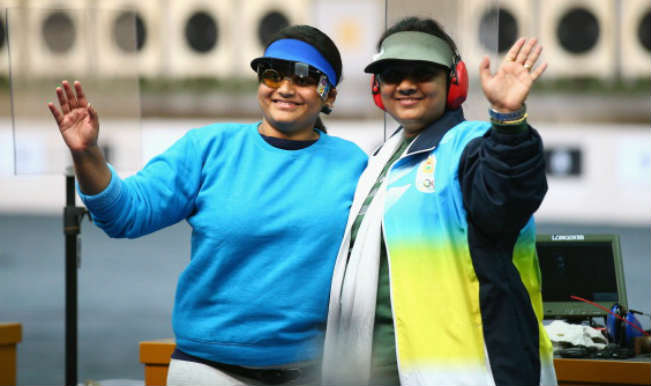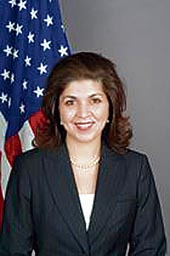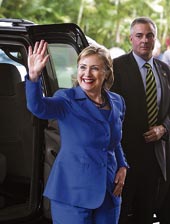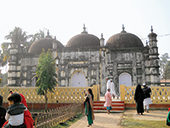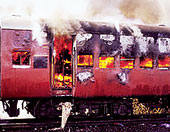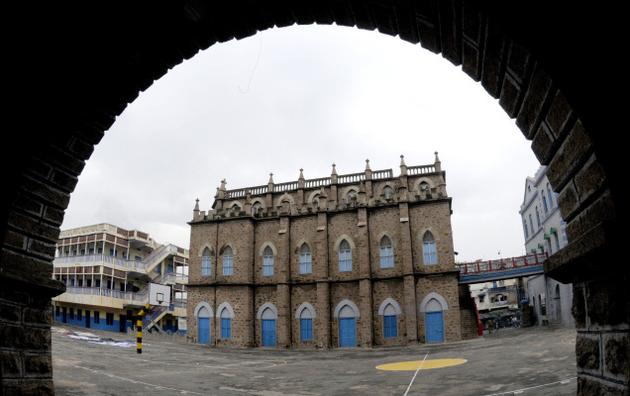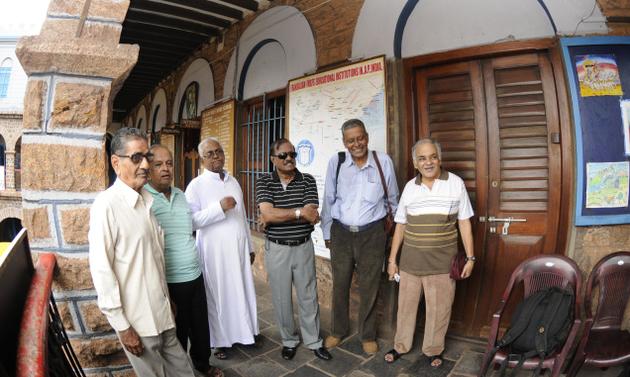New Delhi :
Syed Asif Ibrahim broke the glass ceiling to be named the first Muslim Intelligence Bureau chief, but the appointment has divided opinion with some lauding it and others saying the officer who superseded four seniors was picked for political “gain”.
The 59-year-old IPS officer, who has been with the bureau for nearly three decades, will take over the premier internal intelligence-gathering agency at a time Muslims account for only 6 per cent of the country’s police force, according to the Sachar committee.
Security experts, both serving and retired, reacted to the selection. “There could not have been a better choice and Ibrahim is the best suited person to lead the IB,” said Amar Bhushan, former special secretary of external intelligence agency RAW.
Traditionally, Bhushan added, no Muslim officers were earlier appointed to senior posts in either the IB or the RAW. “There is a bias against the community but things are changing now. In fact, we need more Muslim officers in the IB to strengthen intelligence gathering,” he said. “For example, Muslim officers would get better access if they go to (a minority-dominated place like) Azamgarh.”
Former IB director Ajit Doval said Ibrahim was the “best officer in the national interest” and it was “just a coincidence” that he was a Muslim, but added a word of caution for the new chief. “As IB chief he will have to prove himself as it is a highly sensitive posting…. The political system in our country will always try to manipulate and take political advantage from him,” Doval said.
Ibrahim, a 1977-batch, Madhya Pradesh-cadre officer who has served in Kashmir and has exposure to cyber security, will take over from outgoing IB chief Nehchal Sandhu who retires on December 31.
The first Muslim to head the IB since independence, Ibrahim had joined the bureau as a special director (security) after his return from London where he served as minister (co-ordination) in Indian high commission.
Retired judge Rajinder Sachar, who submitted a much-debated report on the economic and social condition of minorities, said the government had sent the right message. “The best thing is that a deserving person has got it and it should not be seen as some favour has been done to him. He superseded officers because the government found him more competent,” he said. “Why should a Muslim be treated as an outsider?”
Sachar’s report had highlighted the poor representation of Muslims in government services, including in the police, and had suggested that the presence of minority officers in the force could help build confidence within the community.
Muslims now account for around 1.1 lakh of the country’s 16.5 lakh-strong police force, which works out to approximately 6 per cent. If the 47,000 in Jammu and Kashmir are excluded, the percentage dips further to 4 per cent.
Ved Marwah, a former governor and National Security Guard director-general, however, said the selection smacked of political opportunism.
“He is a brilliant officer and I do not have anything against him. But what was the need for the government to appoint him after superseding four senior officers. It has been done for political gain,” he said.
“I think this will generate groupism and ill-will among officers whose job is to protect national security. It could also increase communal bias rather than stopping it. This is a sad state of affairs as intelligence officers will have to act under the direction of politicians,” Marwah said.
The government, Marwah added, should recruit more youths at lower levels to improve the low representation of Muslims in the police. “Communal bias will disappear only when we have Muslim officers at all levels.”
Former Mumbai commissioner and counter-militancy star Julio Ribeiro disagreed with Marwah. “There is nothing abnormal that he superseded others to become the IB chief as there are several precedents. The selection committee takes the best competent person out of the lot. I think he is a good officer and the right choice for IB’s top post.”
Ribeiro didn’t think politics influenced the appointment. “I do not think the government will get political dividends from his appointment. Voters are not foolish,” he said.
Outgoing CBI director A.P. Singh also welcomed the selection. “It’s a good thing that an officer who happens to be a Muslim has been selected on the basis of competence.”
Wajahat Habibullah, chairperson of the National Commission for Minorities, said it was “great news” that Ibrahim had been selected on the basis of merit. “And also the fact that him being a Muslim did not come in the way.”
Following the Sachar committee’s report, the Prime Minister’s 15-point programme for the welfare of minorities had advised state governments to give special consideration to minorities while recruiting police personnel. For this purpose, the selection committees should have representatives from the minority community, it said.
“But the situation has not improved,” Habibullah said.
Bhushan, the former RAW special secretary, said there was a “deliberate policy” to exclude Muslims from sensitive and strategic services. “But the glass ceiling,” he added, “has started breaking.”
source: http://www.telegraphindia.com / The Telegraph, Calcutta / Front Page> Nation> Story / by Imran Ahmed Siddiqui / New Delhi – November 29th / Friday – November 30th, 2012
